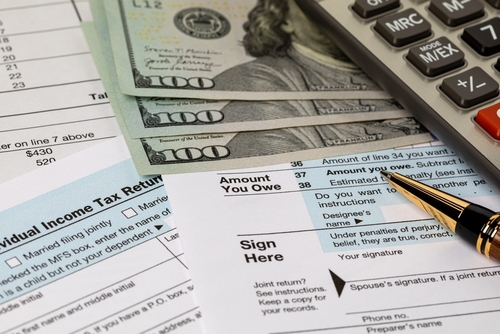Are Veterans Disability Benefits Taxable?
If you are new to receiving Veterans Administration (VA) disability benefits, or applying for it you must understand that tax liability associated with it.
VA disability benefits are not taxable and not included in the gross income you list on your income taxes.
However, if you receive military retirement disability pay, those benefits could be taxable. Military retirement disability pay is not the same as VA disability income.
If any of these apply, your military retirement disability income can be excluded from your taxable income:
- You were eligible to receive disability pay before September 25, 1975.
- You were serving as a member of a listed government service or with its reserve unit or you were under a binding written contract to join as of September 24, 1975.
Your disability payments stem from a combat-related injury. This is a personal illness or injury that is:
- Resulting from armed military conflict;
- Happened while you were engaged in an extra-hazardous service;
- Occurred under conditions simulating war, including training exercises or maneuvers; or
- Is caused directly by an act of war.
Or, if you meet the requirements that entitle you to receive VA disability benefits if you were to apply for it. Your exclusion under this rule would be funds equal to the amount you would be entitled to receive if you received VA disability compensation.
Proceeding with a VA Disability Claim
VA benefits are non-taxable, and they are awarded based on the disability rating you receive. If the VA approves your claim, they will assign a rating that ranges anywhere from 0% to 100%. Even a rating of 0% is acknowledgement that you have suffered an illness or injury while on active duty that is connected to your military service, but it doesn’t warrant benefits at this time.
It is good to get a 0% rating rather than get a no-service related rating because if your condition worsens later on, you can ask to have that rating upgraded. To proceed with a disability claim, you need to enlist the help of a disability lawyer.
Furthermore, if you suffer from PTSD, the disability rating is listed under the general rating formula for mental disorders, which indicates the criteria for disability ratings with such impairments are 0%, 10%, 30%, 50%, 70%, or 100%.
Veteran PTSD benefits are part of the VA disability benefits available to soldiers who suffered injuries while on active duty.
Impairment ratings are how the symptoms of your service-related condition are equated into a percentage and monetary value.
Many veterans with PTSD believe that they did not receive an accurate rating for their condition. A Social Security disability lawyer can help you with these claims and help you argue your case as well as your disability rating.
A disability attorney knows how to proceed with these claims and how to help you get maximum compensation for your condition. If your military service left you with an illness or injury, consult with us at (855) 445-9787 today. We understand claims tend to be denied without legal help and we will stand with you.
Social Security Disability Benefits
To receive Social Security disability (SSDI), you have to have a condition that will render you disabled for a minimum of five years or result in your death and your disability can be the result of multiple conditions. Also other conditions can be included with your military disability used for your VA benefits. SSDI only offers benefits for full and permanent disability and doesn’t give disability ratings.
Its common for those who receive VA disability benefits, to apply or receive Social Security Disability Insurance (SSDI) benefits as well. These benefits can be taxed, but it happens very rarely.
The majority of those who are receiving Social Security disability benefits don’t receive enough income to pay taxes, with only about one-third of recipients paying them. So in general very little SSDI is taxable.
However, Social Security garnishment can only be done by the U.S. government to retrieve money owed, for situations such as back taxes or default student loans. Disability income is exempt from garnishments by creditors.
If you believe you meet the Social Security qualifications or the requirements for VA benefits, you should file a claim. The Social Security application and the VA disability application can be quite challenging to complete.
Because of this, A Social Security lawyer is highly recommended. They will know what information is needed and how to properly complete your application to improve your chances of being awarded disability benefits.
To learn more about disability benefits and the tax obligations that come with them, contact your New Orleans disability legal team at Ascend Disability Lawyers, LLC. at (855) 445-9787







